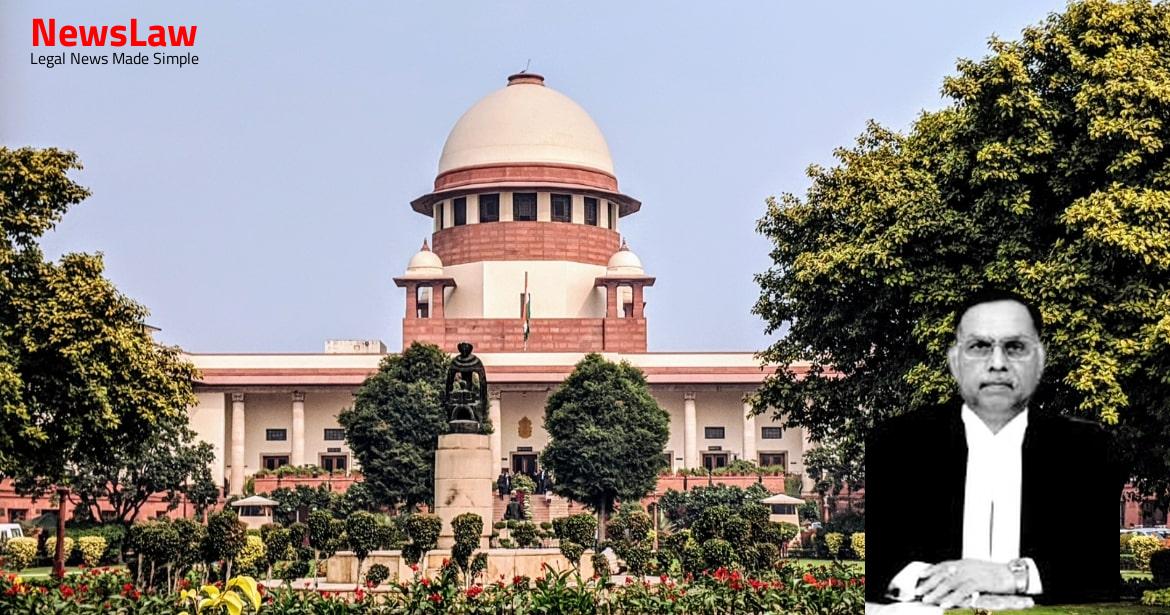In a recent legal case concerning fee fixation in educational institutions, the court delved into the intricacies of AFRC guidelines and the requirement to follow Rule 4. This analysis emphasizes the significance of ensuring fees do not lead to commercialization of education while respecting the need for growth and maintenance expenses. The court’s interim orders regarding fee structures highlight the importance of adherence to legal procedures in safeguarding the interests of both institutions and students.
Arguments
- The Single Judge’s order has been clarified to exclude a number of institutions.
- The 2019 Act is prospective in nature and not directly concerning the current issue.
- The interim fee fixed by the Andhra Pradesh Government without following Rule 4 has been found prima facie illegal and correctly suspended by the Single Judge’s order of 31.07.2019.
- A Single Judge, in an order dated 07.05.2020, has stayed the operation of fees fixed by the government under the Act for the year 2019-20.
Also Read: Legal Analysis on Physical Ability in Rape Case
Analysis
- Fee fixation for unaided institutions like the present two institutions
- Fee fixed at Rs. 86,800/- for the petitioner in the first matter and Rs. 59,500/- for the petitioner in the second matter for the years 2016-2019
- Proposals for fee increase up to Rs. 1.35 lakhs and Rs. 72,000/- for the next block of two years (2019-2020)
- Rule 4 under the Act specifying fee fixation
- The AFRC considers various factors while prescribing the fee for professional institutions.
- The factors include the location of the institution, nature of the course, infrastructure cost, administration and maintenance expenses, surplus needed for growth, and revenue foregone due to fee waivers for certain categories of students.
- The fee determined by AFRC is valid for three years and cannot be altered for a student admitted under that fee structure until completion of the course.
- The State temporarily fixed fees for 2019 onwards, which was challenged in a writ petition for violating Regulation 4.
- The Single Judge suspended the interim fee fixation in favor of the petitioners due to prima facie merit, balance of convenience, and irreparable loss.
- The AFRC must ensure that fixed fees do not lead to profiteering or commercialization of education and provide an opportunity for institutions to be heard before fee fixation.
- AFRC scrutinizes proposed fee structures, approves or alters them as necessary, and considers any other relevant factors in fee fixation.
Also Read: Legal Analysis on Admissions and Document Consideration in Insolvency Case
Decision
- The Division Bench should not have interfered with the Single Judge’s interim order dated 08.08.2019.
- The State Government will inform colleges and appropriate authorities about the fees claimed and recommended by AFRC.
- Students will be notified about the pending writ petition regarding fee structures, and they cannot claim any equities thereafter.
- The order of the Single Judge suspending the impugned G.O. is modified to allow the collection of fees fixed for the block period 2018-2019 for engineering and other courses, with a bank guarantee obtained from students for the difference in fees for block periods 2019-2020 to 2021-2022.
- The Andhra Pradesh Higher Education Regulatory and Monitoring Commission Act, 2019 has come into force, and a Commission has been set up to determine fees for unaided institutions.
- The AFRC will communicate the fee structure it determines to the Government for notification.
Also Read: Analysis of Transfer of Winding Up Proceedings to NCLT
Case Title: RAJEEV GANDHI MEMORIAL COLLEGE OF ENGINEERING AND TECHNOLOGY Vs. THE STATE OF ANDHRA PRADESH (2020 INSC 454)
Case Number: C.A. No.-002739-002739 / 2020



